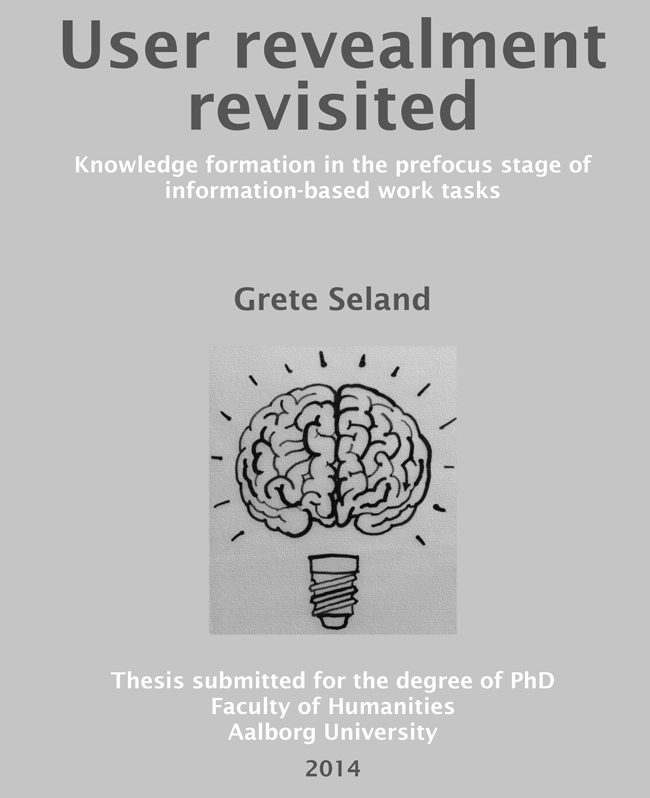The aim of this thesis has been to investigate how students gradually become more aware of their information needs during their work task process, specifically during the prefocus stage, before they have formulated a topical focus.
The process of students clarifying their information needs was called cognitive user revealment. It was explored whether – and how – students might benefit from teachers’ terminological understanding of a topical area, as well as how students’ learning styles affect their formulation behaviour. The research topic has been explored with an interdisciplinary perspective, using information searching theory, cognitive linguistic theory, and cognitive psychological theory.
The findings can be summarized as: The variation in students’ formulation of information needs is related to prior knowledge of the work task, degree of deep learning style, and previous studies in pedagogy. Most students benefit from their teachers’ terminological competence by using an associative semantic tool in the prefocus stage of their work tasks for enriching their own brainstorm. Students with a high degree of deep learning style also used the semantic tool in the revision of search term
candidates – either as a trigger in the reactivation of their own vocabulary, or as an input for new tentative search terms. When students with a high degree of deep learning style select many terms from the semantic tool in the reformulation of tentative search terms, they have already exhibited a large self-produced vocabulary on their own.
Activated current knowledge enhances students’ abilities in information need formulation. This can be stimulated by the use of associative semantic tools, as well as by an increased digital literacy among students.







